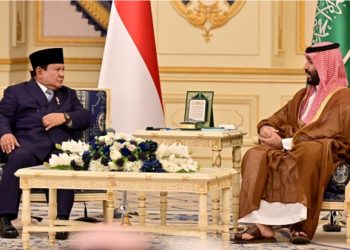Jakarta, Indonesia Sentinel — The Indonesian government is planning to reform its social assistance (bansos) program by focusing on empowerment and development initiatives. The approach aims to stimulate economic growth, enabling recipients, particularly the poor, to elevate their economic status through opportunities such as entrepreneurship or wage-based employment.
Budiman Sudjatmiko, head of the Poverty Alleviation Acceleration Agency (BP Taskin), emphasized that future social assistance would be more targeted.
According to CNN Indonesia, the social assistance will be focusing on groups that are genuinely unable to work, such as people with disabilities, the elderly, and individuals with mental health conditions. Budiman said the initiative seeks to provide jobs for unemployed individuals of productive age, including those affected by layoffs.
“For those with productive capacity, we will direct them toward employment and income opportunities,” Budiman said at a press conference at the Coordinating Ministry for Human Development and Cultural Affairs in Jakarta on Friday, December 6.
He noted that similar proposals have been echoed by the Ministry of Manpower, highlighting the scale of employment challenges in Indonesia, which extend beyond the ministry’s capacity alone.
“There are technical challenges on the ground. For instance, layoffs happen in certain industries or regions. How do we accommodate those impacted by layoffs?” Budiman explained, referring to recent coordination meetings with stakeholders.
Indonesia Women National Football Team Clinches First-Ever AFF Women’s Championship Title
One solution proposed is empowering micro, small, and medium enterprises (MSMEs) as a way to absorb laid-off workers and stimulate economic activity.
Budiman highlighted an initiative to involve MSMEs in infrastructure development projects, such as toll roads. MSME operators would be given opportunities to set up businesses in rest areas along these roads, opening new avenues to increase income. In this effort, the Ministry of Cooperatives and MSMEs will serve as the primary partner to ensure effective implementation.
The new approach reflects a significant paradigm shift: from passive welfare distribution to active empowerment. By targeting unemployed individuals of productive age, those affected by layoffs, and fostering MSME development, the government aims to create a self-reliant economic ecosystem.
Through cross-ministerial collaboration and engagement with local communities, the strategy not only seeks to alleviate poverty but also provides beneficiaries with opportunities to improve their economic standing.
(Raidi/Agung)

























